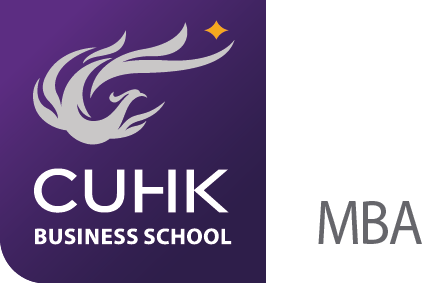Asia’s Economic Rise Requires Responsible Leadership
Professor Victoria Wang from the Chinese University of Hong Kong Business School (CUHK) in Hong Kong brings global experience from IBM, DuPont, and HAVI to her classroom. She holds a Ph.D. in cross-cultural leadership and has around 30 years of international business experience.
More importantly, Professor Wang designed a course named “Leading Sustainable Business Transformation” with immersive experiences for the CUHK MBA Program that combine sustainability, leadership, and business practices in Asia with classroom teaching and discussion as well as beyond classroom first-hand observations. She is also a Professional Certified Coach (PCC) by the International Coaching Federation (ICF), mentoring future leaders toward reflective and value-driven growth.
At CUHK, sustainability is deeply embedded in leadership education and the MBA curriculum. In parallel, CUHK MBA graduates gain confidence to pursue business in other Asian markets, embark on career shifts, and excel as global business leaders.
To begin our interview, Professor Wang says, “We are witnessing the rise of the Asia Century.” (00:43) According to the Asian Development Bank, Asia will generate 50% of global GDP by the year 2050. As a result, this economic rise demands leaders rooted in environmental and social responsibility.
CUHK’s MBA trains students to lead Asia’s burgeoning growth using real-world, sustainability-focused thinking. Responsible leadership will ultimately define success in this pivotal era, with the climate crisis intensifying.
Why Guilin Is the Ideal Study Lab for Sustainability
The MBA program at CUHK includes an immersive study trip to Esquel Integral in Guilin. An empowering and enriching 2.5-day program equips students with the essential knowledge and tools necessary to navigate the evolving landscape of sustainability in business.
Esquel Integral is a pioneering company that has transformed from a traditional original equipment manufacturer (OEM) in the textile industry to a sustainable development business model. Students directly explore how Esquel integrates sustainable growth strategy, architecture, innovation labs, and ethical production into its operations.
Guilin is a city with a rich history and scenery, renowned for its commitment to environmental preservation and cultural heritage, supported by China’s commitment to sustainable development as a country. This offers a setting where students actively apply sustainable theory to complex business realities. Subsequently, China’s rapid industrialization and Guilin’s preserved ecology push students to think critically about sustainability in context.
From Harvard Case Study to Dialogue with Executives
This MBA course goes beyond typical textbook examples by connecting students with the Esquel Group, who were also previously featured in a Harvard Business School case study. Moreover, Professor Wang contemplates, “We walk into the company and really interact with their leaders… [and] learn [about] their operations in a real-life sense.” (07:42)
Students actively examine how Esquel reshaped its culture, model, and operations for long-term sustainability goals. The response from students was proof of the inherent core value in the trip, Professor Wang shares, “The top C-suite leaders from the Esquel Group spend two days with us…the engagement in the group was amazing.” (08:54)
Through this direct dialogue, students apply classroom theory to actual operations inside a global sustainability pioneer.
Learning the Triple Bottom Line in Action
This course focuses on teaching the Triple Bottom Line, that is, balancing people, planet, and profit. Professor Wang emphasizes, “Sustainable business transformation is not just about going green…it’s actually a holistic, systematic transformation.” (04:27)
Students experience the whole sustainable transformation change lifecycle through leadership dialogues, workshops, and Esquel’s real-time decision analysis, as well as explore ISO 14000 standards and China’s carbon neutrality goals for a cross-industry and global sustainability impact. Ultimately, they walk away ready to apply this framework across sectors, from fashion to fintech.
Shifting Mindsets Through Reflection
Not all students begin this course with strong beliefs in sustainability or its relevance. Professor Wang recalls, “I had students at the beginning of the trip…told me, ‘teacher, professor, I don’t believe in sustainability…I want to find out if my belief [is] correct.’” (10:18) However, by the end, the same students actively explored leadership roles in sustainability. Professor Wang adds, “I have to say that the impact of this program I’m seeing makes me feel very fulfilled.” (10:53)
Reflection exercises, meanwhile, run throughout the course and help shift skepticism for meaningful transformation. Furthermore, Professor Wang adds, “We ask a lot of questions for the students to think about…do you have a choice now to act differently?” (12:11)
Therefore, this reflective pedagogy empowers students to view sustainability as a personal responsibility, not just a business strategy. When the importance and urgency of sustainability are understood and believed, actions and changes will be inspired.
Turning Climate Risk Into Opportunities
Sustainability holds both ethical and strategic value in today’s fast-changing business world.
Professor Wang stresses, “Sustainability is not a burden; rather, sustainability is something they can take forward as a competitive advantage.” (10:04)
CUHK graduates actively learn how companies reduce risk and increase long-term value through Environmental, Social, and Governance (ESG) and Sustainable Growth strategies. Students use sustainability skills to build impactful careers in consulting, sustainability and technology, proving that environmental and social obligations can drive economic opportunities.
Practical Frameworks Meet Global Policy and Local Realities
Students actively engage with sustainable business transformation frameworks, integrating ESG metrics, systems thinking, and stakeholder engagement.
Moreover, Professor Wang highlights, “We took the students through, in terms of the coupled human-environmental systems and the adaptive development between human and the environment.” (05:39) They also explore China’s 14th Five-Year Plan and the UN Sustainable Development Goals (SDGs) to understand global sustainability drivers.
Furthermore, students study adaptive development and coupled human-environmental systems through an ecological-economic lens. This perspective equips them with critical insights for modern, cross-sector sustainability leadership under both the global trends and the Chinese regional strengths. A sustainable business transformation framework, starting from purpose-driven strategies, is explored in depth and evidenced by Esquel’s Success.
Additionally, a capstone group project is designed to task the students with conceptualizing and presenting sustainability solutions to a panel of Esquel’s executives.
A Global Benchmark for Experiential Business Education
Esquel Integral serves as a real-world benchmark for sustainable manufacturing and innovation.
Moreover, “Students experienced almost 360 degrees of sustainable experience,” (07:57) Professor Wang reflects. Students live in Dorm 2.0 with sustainable infrastructures, eat in sustainable cafeterias, and join a natural dye workshop.
Professor Wang elaborates, “There was a very enjoyable moment when students were showing off about their artwork.” (08:34) Overall, this immersive program uniquely shows how business, culture, and community can connect for long-term sustainable impact.
Lead Asia’s Sustainable Future with a CUHK MBA
CUHK’s MBA empowers students to be impactful and visionary to lead Asia’s sustainable future through hands-on, real-world teaching and learning. The Guilin study trip lets them witness how ethical business and environmental innovation can coexist.
Under Professor Wang’s guidance, students turn sustainability from an abstract and theoretical concept into a strategic leadership tool, ready to tackle one of the region’s most pressing challenges.
Want to study an MBA at CUHK? Take our eligibility quiz to see if you qualify!







